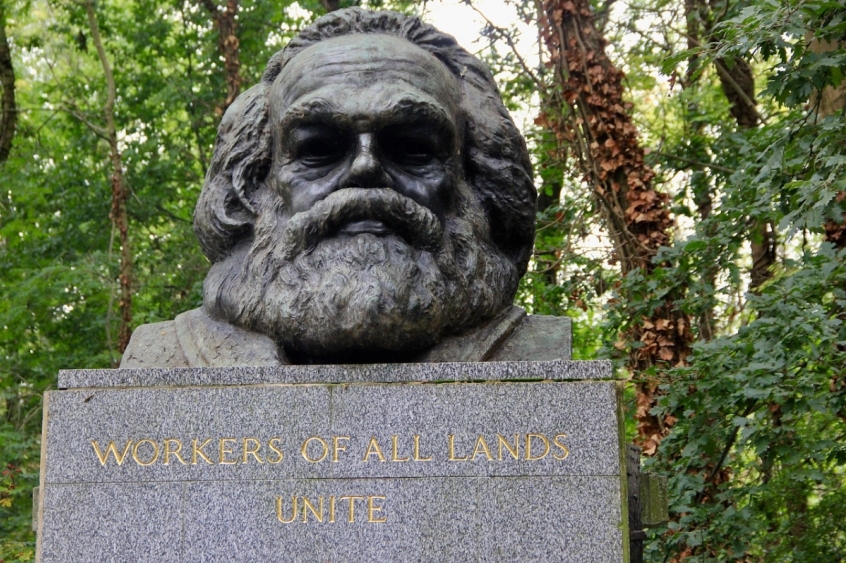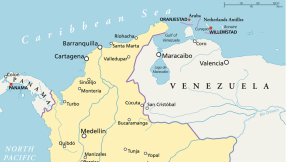Cultural Marxism, if you're not familiar with it, is a term commonly used by those on the Right to identify an agenda and a way of thinking prevalent in our culture and among our elites. I say on the Right, as it's one of those terms, like 'globalist' and 'authoritarian', rarely owned by those it describes. But is it fair?
There's been some debate about this recently. There are a number of other terms commonly used to describe broadly the same thing, among them postmodernism, multiculturalism, political correctness and identity politics. So what we are basically talking about here is anything that claims the mantle of progressive social policy. What does this look like?

Very briefly, progressivism in its own eyes stands against the privileged hierarchies of patriarchy, heteronormativity, white nationalism and so on. It is the source of novel (and often irritating) terms like woke, intersectionality and mansplaining, and embraces radical forms of feminism (especially Third-wave and later), multiculturalism and secularism.
In the academy it deploys the tools of critical theory and deconstruction to expose and oppose what it regards as oppressive power structures and forms of cultural appropriation. It sees language as a key battleground, since with reality socially constructed and language at the heart of social construction, those who control language control reality. For this reason it polices the boundaries of acceptable speech very closely, and has little tolerance for what it regards as the hateful speech and ideas of the political and cultural Right, or any criticism. It regards power relations to be at the core of reality, perceiving violence and micro-aggression across all contexts, and so has few qualms about using force and intimidation itself to achieve its aims.
At its heart is a seductive narrative of liberation from oppression and a vision of individual authenticity achieved through freedom from the constraints of social norms and expectations. It operates primarily by identifying certain social groups (women, LGBT people, racial minorities etc.) that it deems oppressed by others (men, straight people, white people etc.) and then agitates for them to achieve liberation from their oppressors.
In this way (though it wouldn't describe itself like this) it labels people as victims according to certain characteristics they possess and stokes grievances amongst them to move them to anger and action. Very little of this is good for them of course, or for the society in which we all live and need to accommodate one another's differences. But like all revolutionary ideologies it gives little thought to how its end goals will actually work out in practice.
The question some are currently asking is whether this is rightly characterised as a form of Marxism. Some say it has nothing to do with Marx's thought, which is essentially an economic theory, and so is little more than a myth. Others, such as Peter Franklin on Unherd, suggest that the term is fair, but by analogy, not because progressive thought actually has any historical connection to Marxism proper.
For myself, I agree with Gavin Ashenden and Bill Muehlenberg that there is indeed direct influence from self-identifying Marxist thinkers and activists on the modern progressive movement. I would point to Marx's own theory that religion and other ideas are produced by capitalists as tools of social control, and to Marx's collaborator Friedrich Engels, who deemed 'bourgeois' marriage a form of class oppression.
Later we see Italian communist Antonio Gramsci, who advocated subversive cultural revolution as what was subsequently termed 'the long march through the institutions', Jean-Paul Sartre and the anarchic existentialist movement, and sociologist Herbert Marcuse of the Frankfurt School, who called on the Left to silence the Right. There are also a number of others like Michel Foucault who began as Marxists and, though they later renounced the economic theory, retained many of its conceptual tools. Such people helped to bring to birth a movement no longer committed to Marx's discredited economics but still thoroughly immersed in its concepts and categories.
This pivotal role played by Marxist thinkers and the broader neo-Marxist movement in the development of modern progressivism I think fully justifies applying the epithet 'cultural Marxism' to it.
Nonetheless, I confess that I rarely use the term myself. This is primarily because while I think Marxism and its intellectual legacy has been a huge influence on the postmodern outlook, I don't think it is the only one. I'm therefore wary of over-crediting Marxism and downplaying other factors, such as the influence of secularist liberals like John Rawls and their ideas of a diverse and permissive society that is supposedly ideologically neutral.
Linked to this is the fact that very few on the Left use the term themselves and would not endorse it as they do not regard themselves as Marxists. Granted this is because many are ignorant of the intellectual and historical origins of the ideas that drive their movement. But even so, for reasons like these I usually reach for more familiar (and less polemical) terms like progressivism, multiculturalism, postmodernism, political correctness and so on. That's certainly not to say I never refer to cultural Marxism or neo-Marxism, just sparingly and when the context seems right.
Dr Will Jones is a Warwickshire-based writer, a mathematics graduate with a PhD in political philosophy and a diploma in biblical and theological studies. He blogs at www.faith-and-politics.com and is author of 'Evangelical Social Theology: Past and Present' (Grove, 2017). He can be found on Twitter @faithnpolitic













